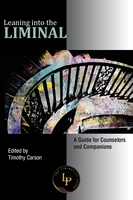The world was shocked last October 7 by the savage attack on Israelis by Hamas. The surprise attack left over 1,200 dead, including many who were tortured, raped and taken hostage. It was a dark and brutal day. Nothing can ever justify such an act. Shock waves crashed over Jewish communities everywhere. In retaliation, Israel conducted a military offensive to root out Hamas, protect itself, and prevent such incursions from Gaza again. The scale and type of response, however, brought about massive destruction, the deaths of over 30,000 people, the large majority of whom were non-combantants, women and children. The infrastructure of Gaza was destroyed, including hospitals, schools, mosques and churches. Israel’s prime minister and war cabinet prosecuted a war that was far beyond proportionate. The result of this outsized military action in Gaza has created nothing short of a humanitarian disaster. Sadly, regardless of American dipolmacy and requests for a cease fire and cessation of indiscriminate bombing, the destruction continued. And yet – this is the moral and political key – the United States continues to provide military aid and hardware that makes all this possible.
The history of conflict in this region is long and complex. Continuing injustices maintain simmering resentments and a cycle of retribution. Outside terrorist organizations fuel additional violence. Hopeful diplomatic resolution is often scuttled by actors who do not want peace initiatives to succeed.
All that said, it is not lost on university students that the United States is not free of culpability in this conflict. As a result, students across the county and indeed the world have engaged in on-campus protests. For those of us who have lived for more than a few years, this kind of response is not a new phenomenon. Students often represent a moral barometer on social issues, including but not limited to war and injustice. They often organize and engage in prophetic speech and action.
Siding against protesting students and instead aligning with those who attempt to repress them almost always ends up on the wrong side of history. Nevertheless, some universities, cities, law enforcement, and expressions of the military have attempted to break up protests, arrest students, tear down encampments, and exercise violent reprisals, including tear gassing, forcible restraint, and sometimes worse.
On May 4, 1970, the Ohio National Guard descended on Kent State to exert authority and maintain order. As a result, four unarmed students were killed. Others were harmed and wounded. It was entirely unnecessary. Horrific things like this happen when force is brought to bear when citizens peacefully engage in free speech and right of assembly.
If better angels were summoned in such a time as this, I believe they would counsel restraint, slow response, and free expression. University administrators would be talking with students, and doing so in public spaces. Use of law enforcement would be limited to incidents of violence or expression of hate speech.
Easy? No, not at all. But in a free society, one in which we want to tilt away from authoritarianism and the use of law enforcement and the military against our own citizens, the effort is worth it. We generally have a sad track record in how we have responded to free speech and the right to assembly during hard public conversations.
We could try to get it right this time and avoid repeating one more Kent State.


